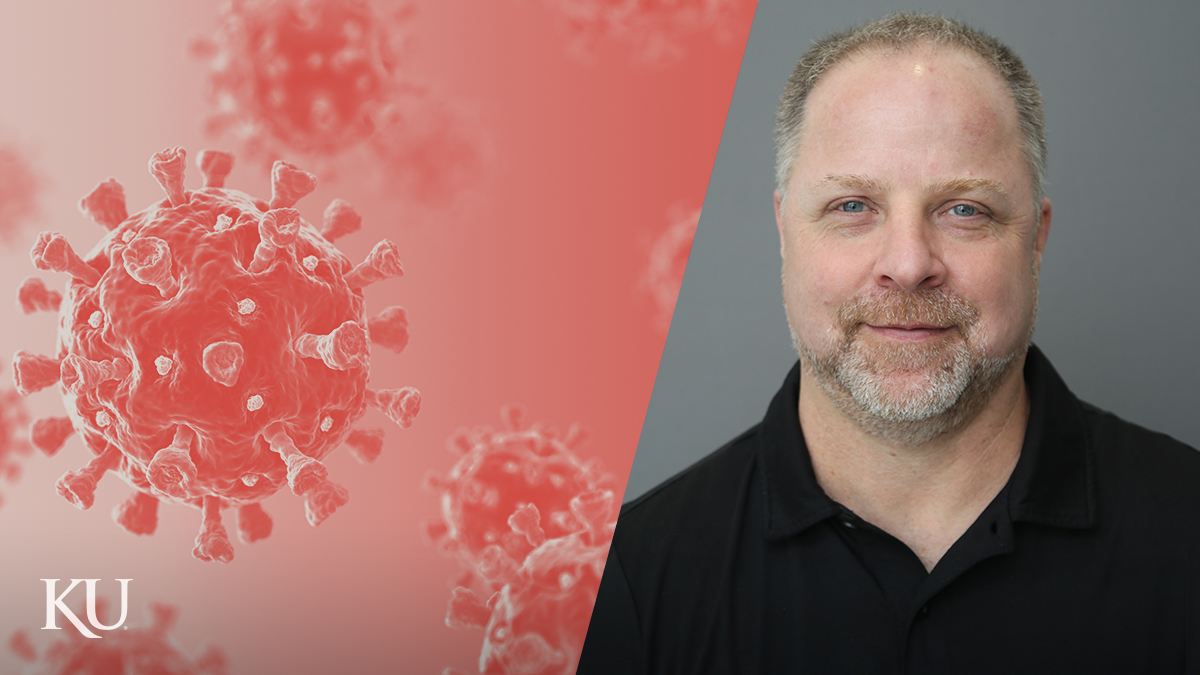KU lab helps researchers worldwide fight infectious diseases

LAWRENCE — A University of Kansas researcher is helping scientists in Kansas and around the world better understand the building blocks of infectious diseases so they can develop new treatments to fight them.
Scott Lovell, director of KU’s Protein Structure & X-Ray Crystallography Lab, is now a member of the Seattle Structural Genomics Center for Infectious Disease (SSGCID) consortium funded by the National Institute of Allergy & Infectious Diseases. The center experimentally determines the three-dimensional protein structures of infectious organisms. After these structures are published in an open-access database, researchers anywhere can use them in their research targeting specific infectious organisms.
To accomplish this, center group members at the Seattle Children’s Research Institute and the University of Washington purify synthetic versions of proteins from infectious organisms that are used to grow protein crystals in Lovell’s lab. The crystals are analyzed using an instrument that focuses an X-ray beam on the samples, and data collected from the X-rays that are scattered by the crystals are used to determine the structure of a protein.
“X-ray crystallography is crucial in the drug development process as it allows us to determine how candidate drugs interact with a protein that is the focus of a particular disease,” Lovell said. “We effectively obtain an atomic-level snapshot of a drug binding to a protein, and this information is used by the team to develop more potent compounds.”
The project started in 2007 when the NIAID funded two centers to expedite the structure determination of proteins from various infectious organisms. SSGCID has a team of subcontractors with specific areas of expertise who contribute to the various steps in the structure-determination pipeline but work together as a highly collaborative group.
One of the main attributes of SSGCID is that investigators worldwide can submit structure determination requests for proteins of interest related to their research. This creates new opportunities for academic institutions in the region.
“The structures determined for protein targets are immediately deposited to an open-access database referred to as the Protein Data Bank, where researchers anywhere can download the data to utilize for their research or facilitate new collaborations with SSGCID,” Lovell said.
Requests are processed though the Seattle Structural Genomics Center for Infectious Disease website by selecting the Community Requests tab and sending the request via email or though the webform. Researchers can request protein targets for structure determination or samples for a particular protein target for their own research.
This project highlights KU’s strength in the study of molecules and medicines, which is one of the university’s five strategic research themes. Research in this area advances the diagnosis, treatment and prevention of human disease through better understanding of disease mechanisms at the cellular and molecular level.
Other recent, though distinct, examples of KU’s activity in this area include the announcement this year of two new research centers monitoring avian flu and mammal pathogens. Last June, KU also invested $3 million toward the use of big data for drug discovery as a part of its Research Rising initiative.